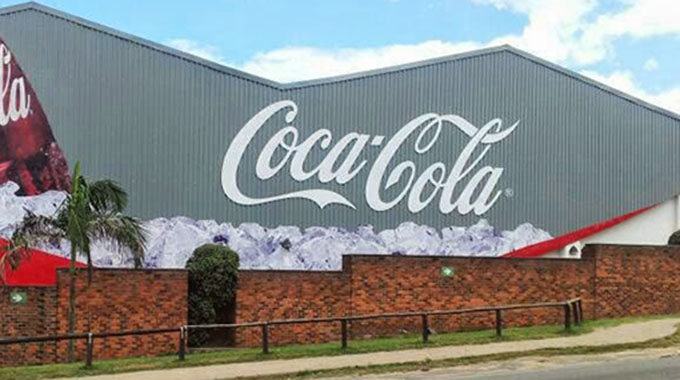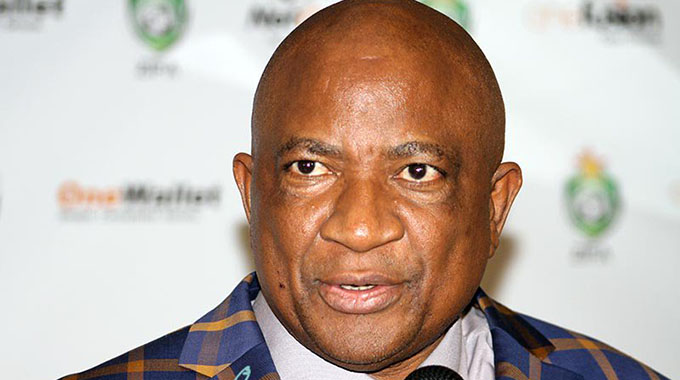EDITORIAL COMMENT: An idea that has taken world football by storm

COCA-COLA Zimbabwe’s decision this week to honour two late Zimpapers sportswriters, Paul Mundandi and Roy Matiki, for the scribes’ contributions to the growth and success of the Copa Coca-Cola schools football tournament could not have come at a more appropriate time.
That the soft-drink manufacturing giant decided to hold a special function, where they honoured the two late journalists, just a day before the globe marked World Press Freedom Day, was a masterstroke in terms of timing for the event.
Matiki, who died in 2012, and Mundandi, who pases on in November last year, were our dear colleagues at this organisation and they were some of the most devoted sportswriters of their time, usually committing themselves to tough trips across the country to cover various events.
They invested a lot of their time to the coverage of the Copa Coca-Cola schools football tournament, which started in this country in 1989, and which has spread across the globe and is now staged in more than 60 countries, across five continents around the world on an annual basis.
More than 80 000 schools around the world have been taking part in the Copa Coca-Cola tournament, with more than 1,3 million teenage footballers showcasing their budding talents in the game.
That we are the pioneers of this tournament, where some visionary Zimbabweans decided to invest in the sponsorship of schools football about 30 years ago and, with the passage of time, provided a model which has been copied around the world, is something that should be giving all of us a measure of pride.
A global research study on the tournament conducted by Coca-Cola heaped lavish praise on Zimbabwe for its pioneering role in this schools tourney and how this country’s version has continued to set the benchmark for others to follow.
“In 1989, Coca-Cola in Zimbabwe created a competition to empower footballing passion and support the development of budding grassroots talent,” the report reads.
“The event was an unrivalled success and soon spread throughout the country before, almost a decade later, moving across the Atlantic to Mexico in 1998, where it became Copa Coca-Cola (inspired by the Spanish word for Cup).
“The tournament was implemented in partnership with governments and football federations to make the competition one of the leading events in the country’s sporting calendar.
“Copa Coca-Cola continues to expand, with more countries and teens participating in the tournament.’’
The tournament provided a platform for players like the legendary Peter Ndlovu, the late Benjamin Nkonjera, Norman Mapeza, who would go on to become the first Zimbabwean in-field player to feature in the UEFA Champions League, and Kennedy Nagoli, who made the grade to play for iconic Brazilian club Santos, to announce their arrival on the big stage.
This year is very special for this tournament in this country in that it marks the 30th anniversary of the year when the inaugural tourney was held here with Mzilikazi High School, powered by the talents of Peter Ndlovu and the late Benjamin Nkonjera, soared to victory by beating Manunure of Kwekwe 3-0 in the final in Bulawayo.
Fittingly, the organisers of the tournament decided this week to honour the sportswriters who have helped shape this tourney over the years and honoured our late colleagues Matiki and Mundandi with the duo’s family representatives being awarded certificates on Wednesday.
Relations between the media and the parties they work with are usually frosty and it’s refreshing to note that, against such a background, there are areas where there is good co-operation that has helped to produce success stories in this country.
Where the role of the media is respected, where the common goal is to develop and not to destroy, and where such solid partnerships can help shape things that can become very successful, as in the case of the Copa Coca-Cola, that more than 60 countries from around the world can copy our model and adopt it as part of their football development programmes.
We salute Coca-Cola for showing others, including some sporting and political leaders in this country, who only think that the media is there to destroy and treat it with both disdain and suspicion when it has already been shown that, where both parties can work together, with criticism being dished where it is due and praise being showered when necessary, something great can come out of the relationship.
There appears to be a misconception within some sections of the local media that the role of journalism is to just concentrate on negativity, be it in sport and politics, because they believe that nothing good can ever emerge in our motherland.
This section, which is found largely in our political minefield, believes that the only story worth publishing is one that is critical of the establishment, which paints Zimbabwe in bad light, because that is the only kind of article which their paymasters in the shadows, who have their political agendas to pursue, are always crying out for.
But, as the success of the Copa Coca-Cola schools football tournament has shown, with this country providing the template for the world to copy, it’s not all doom and gloom in the motherland as some would like to suggest but there are a lot of positive things that are happening.









Comments